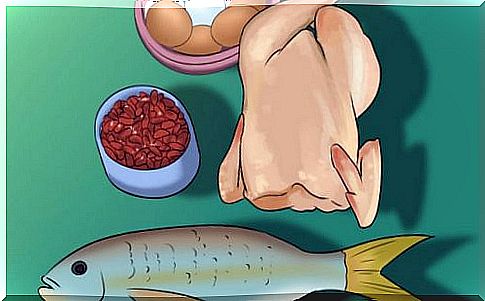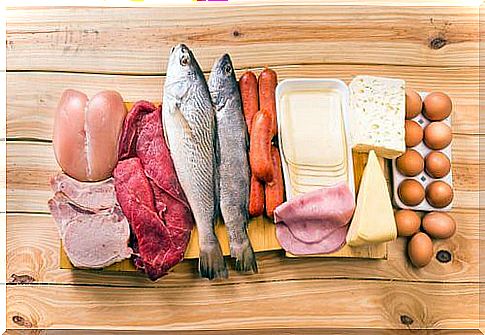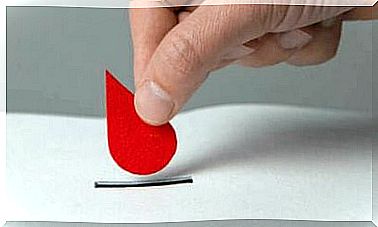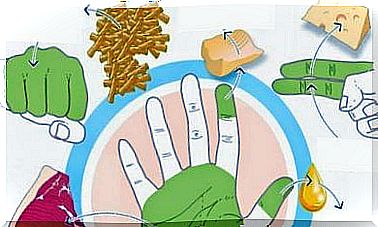3 Signs That Show A Lack Of Protein In The Diet

Did you know that this chronic fatigue that you suffer from and hair loss can be due to a lack of protein and nutrients? If this is your case, consult a nutritionist to rule out serious deficiencies.
Diet is one of the most important factors in human development. Its importance is such that depending on what we include in our diet, the daily energy role will follow.
So, we could say that food is the fuel of the organism. Finally, their quality influences the health factor and the efficiency with which things are done.
In this diet are found important components such as carbohydrates, lipids and proteins. Below we will talk about this last group.
The importance of protein in the diet

In today’s society, food imbalance is frequent, with a greater consumption of protein.
However, due to the change in eating habits, we are also noticing a lack of this important compound.
In this vein, it is necessary to know the role that proteins play in the body and their real importance:
- They provide about 15% of the total energy value.
- Help build bones, muscles, nails, skin and hair.
- Produce antibodies, which help treat infections.
- Help in the process of weight loss, thanks to muscle building.
- Participate in the production of red blood cells and enzymes.
- They play an important role in the homeostasis of the organism, particularly of the water in the body.
Factors that indicate protein deficiency in the diet
Knowing the important processes in which proteins are engaged, we need to know the main indicators of a lack of protein in the diet.
In case we present one of the following factors, the most suitable is to consult a health professional (especially a nutritionist) so that he prescribes us a treatment or an adapted diet.
1. Get sick more easily
 Of course, the first system to respond to a threat to our health is the immune system. It is very strongly bound to proteins.
Of course, the first system to respond to a threat to our health is the immune system. It is very strongly bound to proteins.
When one does not consume enough of this powerful nutrient in the diet, the most likely is to suffer from a deficiency in antibodies: these are protein-based structures.
For this reason, diseases take advantage of the slightest opportunity to start making their own throughout the body.
2. Decrease in muscle mass
One of the most important and common functions of protein is building muscle.
If you go to the gym, one of the first recommendations you will be given will be to increase your intake of protein in your diet to reach your goal faster (muscle hypertrophy).
As the muscles slowly atrophy, it is possible that a problem may arise when consuming protein.
The more time passes, the more they will weaken, then the hypertrophy gained decreases considerably.
This, in addition to affecting the aesthetic image of the person, also has negative repercussions on health.
Injuries and cramps are the first to appear in the body, especially in the extremities, both upper and lower.
3. Chronic fatigue

Chronic fatigue is one of the main indicators of insufficient protein in the diet.
It is characterized by the inability of the organism to carry out common and day-to-day activities, which we can do at any time.
In general, this is exhaustion for no apparent reason, which often worries the person who suffers from it.
4. Skin problems
The skin tissues responsible for making up the surface of the skin require a large number of nutrients to fulfill their basic role. Among them is protein.
When a deficiency occurs, the skin has difficulty creating collagen, keratin and elastin. They are fundamental for everything related to resistance, elasticity or hydration, among others.
Along these lines, the hair is also terribly affected; the hair follicles, made up of proteins, are the most affected.
This interferes with the growth process, as well as the strength and resistance of each hair.
Finally, having a deficiency of this nutrient in the diet also promotes the appearance of wrinkles and expression lines on the face.









